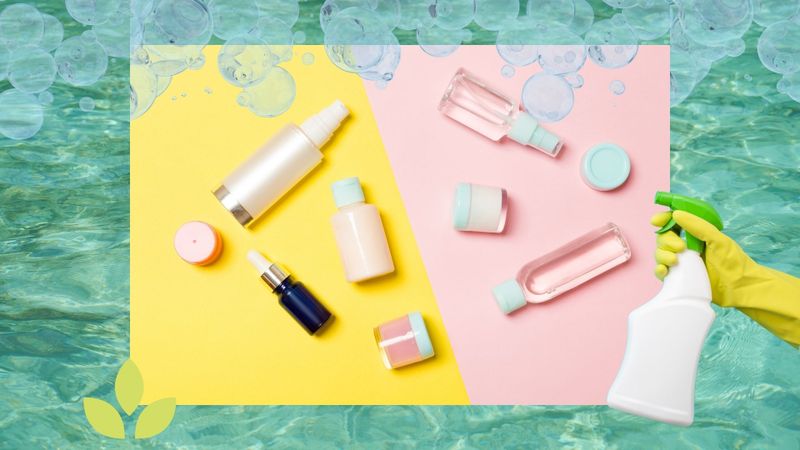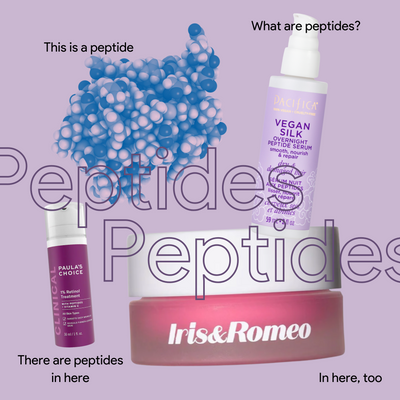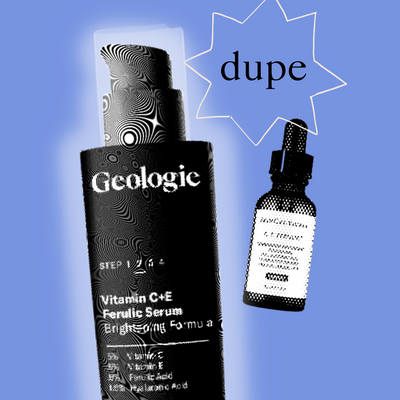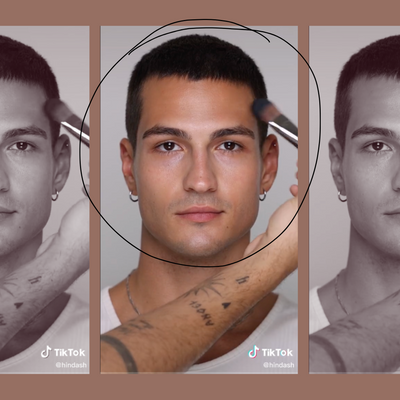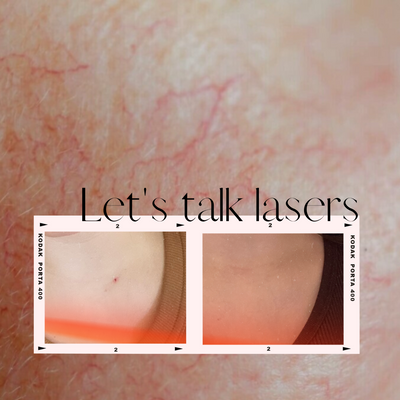“There’s no such thing as natural beauty.” These were the famed words of Dolly Parton in the 1989 film “Steel Magnolias.”
As usual, Dolly has always been ahead of the curve and right on the money. Over 30-years later, the beauty industry is still perpetuating the farce that is “natural beauty,” but one congressman is trying to change that.
Rep. Sean Patrick Maloney from New York’s 18th district recently introduced the landmark Natural Cosmetics Act, which would require the FDA to create definitions of “natural” and “naturally-derived” ingredients used in personal care products.
SEE ALSO: Everything we know about Harry Styles’ new beauty brand, Pleasing
As the law stands now, cosmetics companies are able to say their products are “natural” without having to prove what makes the product natural to the FDA, which oversees all cosmetics regulations. The FDA has gone over 80-years without any major updates to cosmetic regulations, which is how beauty brands are able to get away with falsely labeling products as “natural.” This practice is called “greenwashing,” and refers to brands who intentionally mislead consumers by claiming to be eco-friendly or sustainable as a marketing ploy rather than as a core principle of their brand.
“It is unacceptable and dangerous that corporations are allowed to market products as “natural” even if they contain chemicals and dangerous toxins,” says Rep. Maloney in a press release following the introduction of the bill. “I am proud to introduce The Natural Cosmetics Act, which will protect the health and safety of the American people by requiring the FDA to establish a strong and transparent standard for ‘natural’ personal care products.” Here’s what you need to know.
What is the Natural Cosmetics Act?
The Natural Cosmetics Act aims to create transparency in the beauty industry by directing the FDA to define the terms “natural” and “naturally-derived ingredient” within two years of the law’s enactment.
How do you define natural? That’s something that will be up to the FDA, just as the FDA determines things like sunscreen efficacy. The bill would require the FDA to consider scientific data, consumer knowledge, ingredient processing, and the presence of any impurity that may have an adverse impact on human health in establishing these definitions.
The Natural Cosmetics Act was included in a recent personal care products reform package introduced by Senator Dianne Feinstein (D-CA) in Congress, and is supported by a number of beauty brands, including Beautycounter, Burt’s Bees, and Credo.
“We are proud to support The Natural Cosmetics Act, which calls for the FDA to define ‘natural’ in personal care,” said Mariah Eckhardt, VP and General Manager of Burt’s Bees. “Burt’s Bees has long advocated for clear standards and definitions of natural and we continue to declare percent natural origin on our cosmetic products. We believe this is an important step forward to help safeguard consumer safety and understanding.”
The beauty industry’s response
Many people in the beauty community believe this bill is long overdue. We talked to celebrity makeup artist Daniel Martin and clean beauty founders Mike Fine and Nathan Barksdale from the skincare brand Atticus to get their thoughts on the proposed act and what it means for the future of clean beauty.
In a show of support of the Natural Cosmetics Act, Daniel Martin reposted Rep. Sean Patrick Maloney’s Instagram post announcing the bill.
“As the beauty space gets even more saturated with beauty brands, we need more transparency in what these products are made out of,” Daniel added on Instagram. “The last major federal update in cosmetic regulations was 80 years ago and it was triggered due to the production of lead in cosmetics.”
As Global Director of Artistry & Education at Tatcha, the Japanese-inspired skincare brand beloved for its high-quality and sustainably sourced ingredients, Daniel understands the importance of ingredient safety, and how this bill can help consumers make informed decisions on the kinds of products they use on a daily basis.
“Poor makeup production [and] mining of unsafe pigments can have harsh long term effects on the skin,” Daniel tells Very Good Light. “With regulation, we need full transparency now more than ever for better understanding of what we’re putting in and on our bodies.”
Atticus founders Mike Fine and Nathan Barksdale also support the act, which they hope will “set the groundwork for consumer protection and real transparency from our industry.”
Atticus is a clean skincare brand offering tailored routines for men. The brand uses naturally derived ingredients like kelp and ginger root extracts in its products, and while they don’t market their brand as explicitly “natural,” they view this legislation as an important first step to passing similar legislation in other areas of labeling and marketing in beauty and skincare.
While they support the bill, Mark and Nathan also pointed out a glaring issue: it will only regulate what’s on the label, not how products are marketed.
“Companies can still market a product as ‘natural’ even if it is not,” the founders tell Very Good Light. “One issue we have with this bill—and ones like it—is all the FDA can do is stop the distribution of the products. There is no forced recall, fines, or penalties for those who are defrauding consumers. There isn’t really any incentive to follow the guidelines.”
What’s next for the Natural Cosmetics Act?
Rep. Sean Patrick Maloney introduced The Natural Cosmetics Act in the House of Representatives on November 4, 2021, and now the next step is to assign the bill to a committee for study. If released by the committee, the bill is put on a calendar to be voted on, debated, or amended. If the bill passes by a simple majority (218 of 435), the bill moves to the Senate.
Government is a slow-moving institution. Bills can get stuck in the legislative process for years, so there’s no telling if or when this bill will be passed. Cue the Schoolhouse Rock bop, “I’m Just A Bill.”
But it’s important to celebrate the small wins, and the introduction of a bill to bring cosmetics regulations into the 21st century is significant. Let’s just hope we don’t have to wait another 80 years to see some progress.
1) Tower28 just launched the SPF skin tint of our sensitive skin dreams
3) Indie Lee launched the clean deodorant of our dreams in collaboration with Taos Aer
4) This male-focused skincare line will make you more 'SELFish' about your self-care routine

